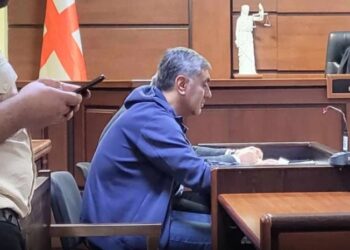The US Senate is set to consider the MEGOBARI Act, a bipartisan bill that envisages sanctions against the GD government officials for human rights abuses and undermining democracy. The Senate Foreign Affairs Committee is expected to take up the legislation “early next week”, say congressional sources cited by Washington, DC-based correspondent Alex Raufoglu.
“In the meantime, the House version of the MEGOBARI ACT, introduced by Joe Wilson and Congressman Steve Cohen early this year, is gaining more support each day,” Raufoglu wrote on social media.
He also added that the bill continues to gain traction, with 18 co-sponsors backing the legislation as of this week.
The bill was first introduced on May 23 last year in the United States House of Representatives. On January 4 this year, Joe Wilson (R-S.C.) and Steve Cohen (D-Tenn.), Congressmen and back-then chairs of the Helsinki Commission reintroduced the bill.
The MEGOBARI Act establishes sanctions against Georgian authorities in response to widespread human rights violations and democratic regression. It also requires US government agencies to report to Congress on Russian intelligence operations and sanctions evasion activities within Georgia.
The legislation underscores the ruling Georgian Dream (GD) party’s increasingly adversarial approach toward Western allies and civil society, while simultaneously pursuing a conciliatory stance toward Moscow. It envisions US support for Georgia’s democratic development through election monitoring aimed at fostering a fair pre-election environment, security assistance, and potential economic incentives linked to democratic reforms.
The bill’s progression comes at a time when Georgia’s relations with the United States and the European Union are at a historic low. The GD government, which continues to govern without opposition in a diminished parliament, faces mounting criticism, with its honorary chairman, Bidzina Ivanishvili, sanctioned by the US for actions that undermine democracy and serve Moscow’s interests.
Tensions escalated in late November 2024, when the Georgian Dream government halted the country’s EU accession process and violently dispersed pro-EU demonstrations. Key officials, including Interior Minister Vakhtang Gomelauri and Deputy Head of the Special Tasks Department Mirza Kezevadze, have been sanctioned for their roles in the brutal suppression of protests, accused of employing tactics such as mass beatings, verbal abuse, and threats of sexual violence against journalists, demonstrators, and opposition figures.














